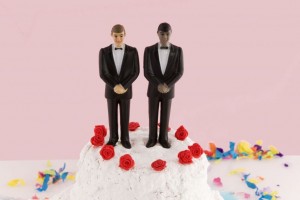Rules Are for Schmucks: Unintended Consequences
 Photo by ivonnewierink / 123RF
Photo by ivonnewierink / 123RF Sociologist Robert Merton first popularized the concept of “The Law of Unintended Consequences” back in the 1930s—the idea that purposeful intervention in a complex system often creates unanticipated, and normally undesirable, outcomes. Nowhere is this truer than in the myriad of laws intended to create special privileges for religion. This is well demonstrated by a recently released study—especially when contrasted with another news item that shows what happens in the refreshingly simple world where the same rules apply to everybody.
A few weeks ago, I wrote about new guidance available from the U.S. Equal Employment Opportunity Commission (EEOC) on religious grooming and dress in the workplace. In a nutshell, employees have all the rights, and employers have none. No matter how much it may offend customers and hurt business, an employer can do nothing at all about employees who start wearing outlandish clothing, hairstyles, tattoos, etc. on the job if they claim their reason for doing so is religious. Employers are free to make and enforce rules against employees’ advertising sports teams, political candidates, causes, or products on their clothing, but if an employee wants to advertise some particular flavor of God expertise, there’s nothing legally the employer can do about it. The EEOC pamphlet on this doesn’t create any new law—it simply summarizes a stream of cases that have been around for a while now.
Think like an economist for a minute. If you’re an employer, and you have the opportunity to hire someone you know is deeply religious versus someone you don’t have any information about, would this set of laws make you more likely or less likely to hire that person? An economist would say they make you slightly less likely to hire the religious candidate, since you will have less control over how that person behaves in your workplace.
And the economist would be right. A new study shows that job applicants who reveal a religious identity to their prospective employers are much less likely to get an interview than are people who make no mention of religion at all. Researchers responded to a variety of online job postings with several résumés that were essentially similar, except for the inclusion of unsolicited information about the applicant’s faith. The chance of hearing back from the potential employer turned out to be 25 percent higher for the religion-free résumés than for the otherwise similar resumes that voluntarily mentioned religious faith.
Breakdowns by the particular religion mentioned are interesting. Mentions of Judaism resulted in only small reductions in the return email rate, while mentions of Islam generated the fewest return emails—even fewer than for the fictional Wallonian religion cited on some of the résumés. In the West, Muslims are the ones who are often assumed to make the greatest demands for special religious privileges in apparel, grooming, and prayer time.
So it appears that a body of laws designed to protect religious expression in the workplace is actually serving to drive religious people out of the workplace. Brilliant!
Contrast this with another recent news item about Jack Phillips, the Christian baker in Colorado who refused to make wedding cakes for perfectly lawful same-sex marriages. As one of the victims of his discrimination put it, “Being denied service by Masterpiece Cakeshop was offensive and dehumanizing especially in the midst of arranging what should be a joyful family celebration. No one should fear being turned away from a public business because of who they are.”
Phillips got in trouble with the Colorado Civil Rights Commission for violating a 2008 law banning discrimination on the grounds of sexual orientation. The Commission ordered him to sell wedding cakes to all comers on an equal basis if he was going to sell them at all, and to undergo anti-discrimination training. But according to Phillips, “The Bible to me overrules all that and the Bible asks me to be obedient to Christ—and the Bible condemns certain things.”
So Phillips has decided to get out of the wedding cake business. He can still earn a living—his brownies and birthday cakes sell quite well, and apparently he doesn’t ask about people’s sex habits before deigning to sell them a cookie. This way he can live without violating his personal beliefs, and his future customers are protected from humiliation. So, in Colorado there is one simple set of discrimination laws, they apply to everybody equally, and what anyone does or doesn’t believe about the Bible or the Qur’an or the Church of Scientology doesn’t enter into the equation at all. Hallelujah!
